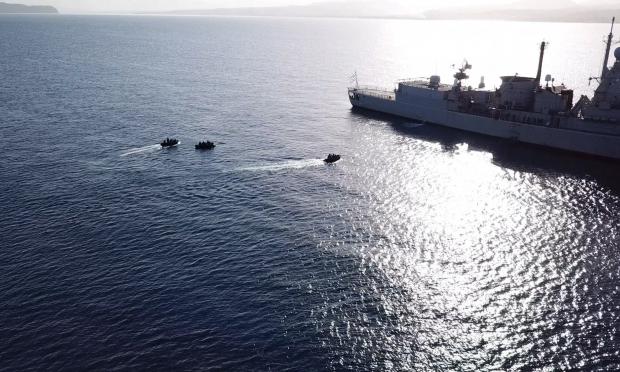The Yemeni armed forces have just attacked a CMA CGM container ship with two ballistic missiles, provoking the international community.
The war over the passage to the "Gate of Sorrows" (Bab al-Mandab) in the Red Sea could enter the "hot" phase in the coming hours.
US vs. Yemen-Iran
Egypt and its president Al Sisi stubbornly refuses once again to join the US coalition in the fight against Yemen/Iran.
The reason is obvious and it is about the total targeting of Egypt by global Islamic terrorism, the Houthis, and of course the Iranians.
The mood in Egypt about the US initiative is not good and many even fear a closure of Suez as a measure to prevent a war so close to that country.
The country's President Al-Sisi has given an order for hydrocarbon extraction in his country's EEZ, and he certainly does not want his country to be involved in a war, particularly with Iran.
German media reports that "Egypt "controls" the Suez Canal and can block it. This would be a disaster for this coalition".
In the end, how close is this scenario to reality?
Britain, Bahrain, Canada, Canada, France, Italy, the Netherlands, the Netherlands, Norway, the Seychelles and Greece have apparently joined the multinational alliance so far.
Its purpose is to prevent Houthi attacks on container ships. According to Austin, the group of nations will conduct joint patrols in the southern Red Sea and the Gulf of Aden.
Israel has been pressing the international community to take action for a long time: , since the Houthis have long since crossed the red line.
However, it is not yet clear what means members will use to support the coalition.
So in particular: to what extent are those states, such as the US and Britain, which already have warships in the Red Sea, prepared to shoot down Houthi missile and drone attacks and rush to the aid of merchant ships.
Spain, which was originally named as a member by the US, withdrew again from the coalition. Italy, however, confirmed that it would send a frigate "against terrorist destabilisation".
But none of this seems to intimidate the Houthis, at least officially: Even before rebel representatives stressed on Tuesday that they would continue attacks on Israeli ships or those bound for Israel, British naval authorities reported another, still unexplained incident in Bab Al Strait, Mandeb off Yemen.
The Houthis also threatened that they may not allow twelve hours to pass between attacks in the future.
Things are different with the Houthis in Yemen.
The radical Islamist rebels, who invaded the capital Sana'a nearly a decade ago and have since controlled large swathes of the north, have consolidated their power despite nearly nine years of war against Saudi-backed government forces.
Saudi Crown Prince Mohammed bin Salman wants to withdraw from the deadlocked conflict as soon as possible.
The recent escalation in the Middle East conflict seems to be playing into the hands of the authoritarian Houthis, who, according to their slogan, want the fall of the US and Israel.
By supporting the Palestinians, they are trying to gain points, especially on the home front.
In Yemen, as in many Arab states, there is great solidarity with the Palestinian population. Several experts also point out that Iran is not seeking regional escalation - even if Tehran approves of the Houthis' actions.
The US-Israeli master plan for the opening of the "Ben Gurion sea channel" wipes out the Suez Canal
Israel and the US appear to be promoting the construction of the "Ben Gurion Canal", which would connect the Gulf of Aqaba, Israel's Eilat port with the also Israeli port of Ashkelon in the Mediterranean Sea, via a sea canal to be built bypassing the Suez Canal.
This new sea route, it should be noted, leaves out Turkey, which caused a strong reaction from Erdoğan, who then "sailed" Greece, in order to initially improve relations with us on issues of common interest and low politics, with the ultimate goal of then proceeding to the delimitation of the continental shelf - EEZ in the Aegean and the SE Mediterranean, indirectly claiming a role in the above-mentioned project.
At the same time, Iran, hostile to the West, combined with its six-winged Houthis in Yemen, threaten the safety of navigation in the Straits of Hormuz and Bab el-Mandeb, with the result that the Arab countries of the Gulf are looking for shorter and safer land routes to bring their oil and gas to the EU.
For their part, Israel and the US seem to be promoting, as a partial solution to the above, the construction of the Ben Gurion Canal, which would connect the Gulf of Aqaba, Israel's Eilat port, with the Israeli port of Ashkelon in the Mediterranean Sea, via a sea canal to be built, bypassing the Suez Canal.
After all, is this all aimed at this very project? This is what many analysts are asking on social networks.




